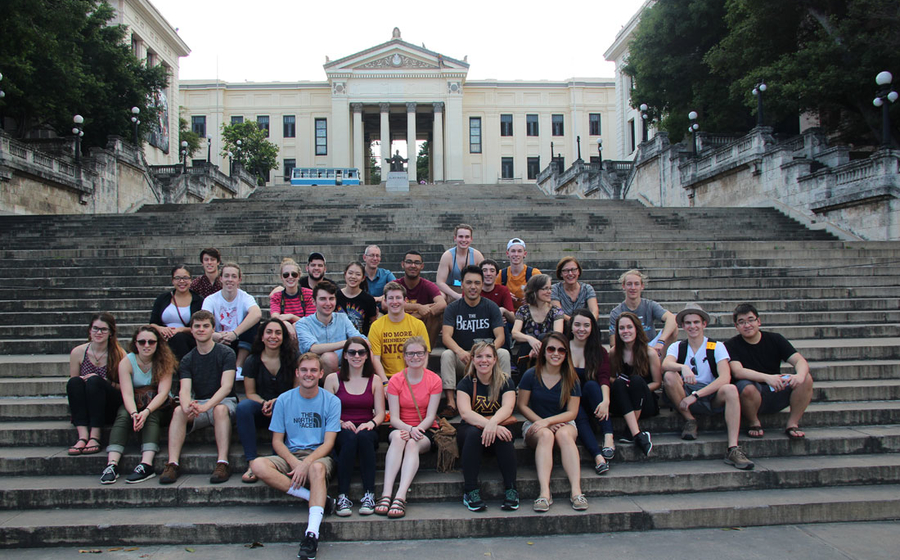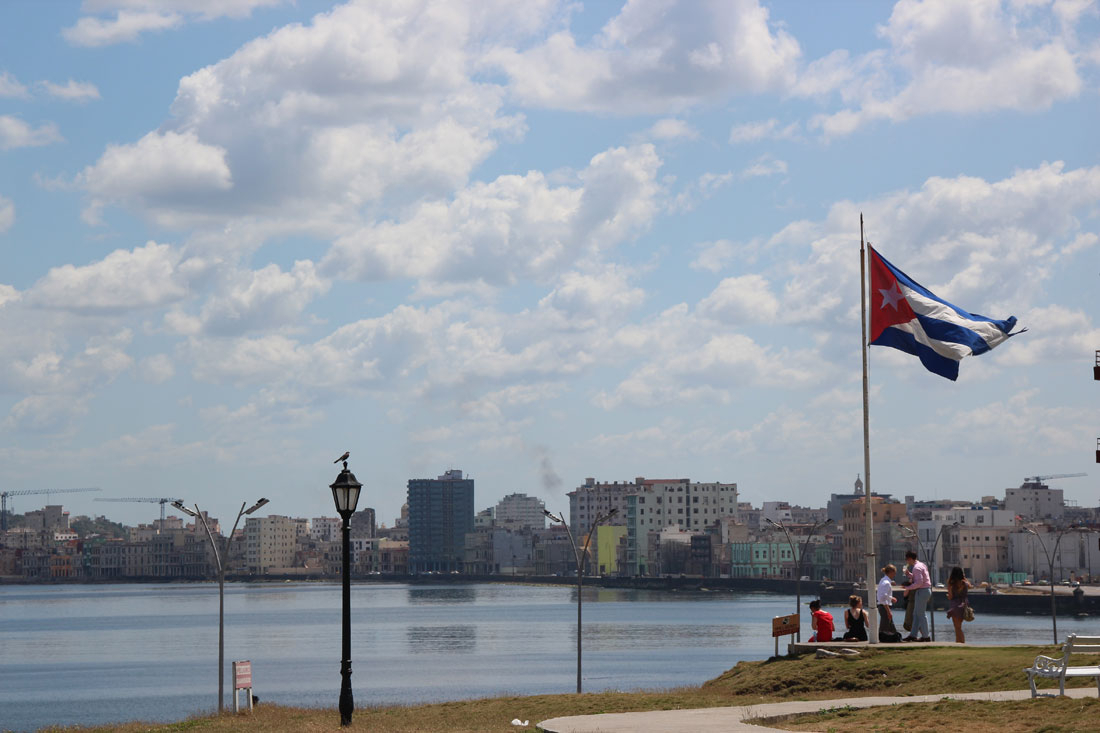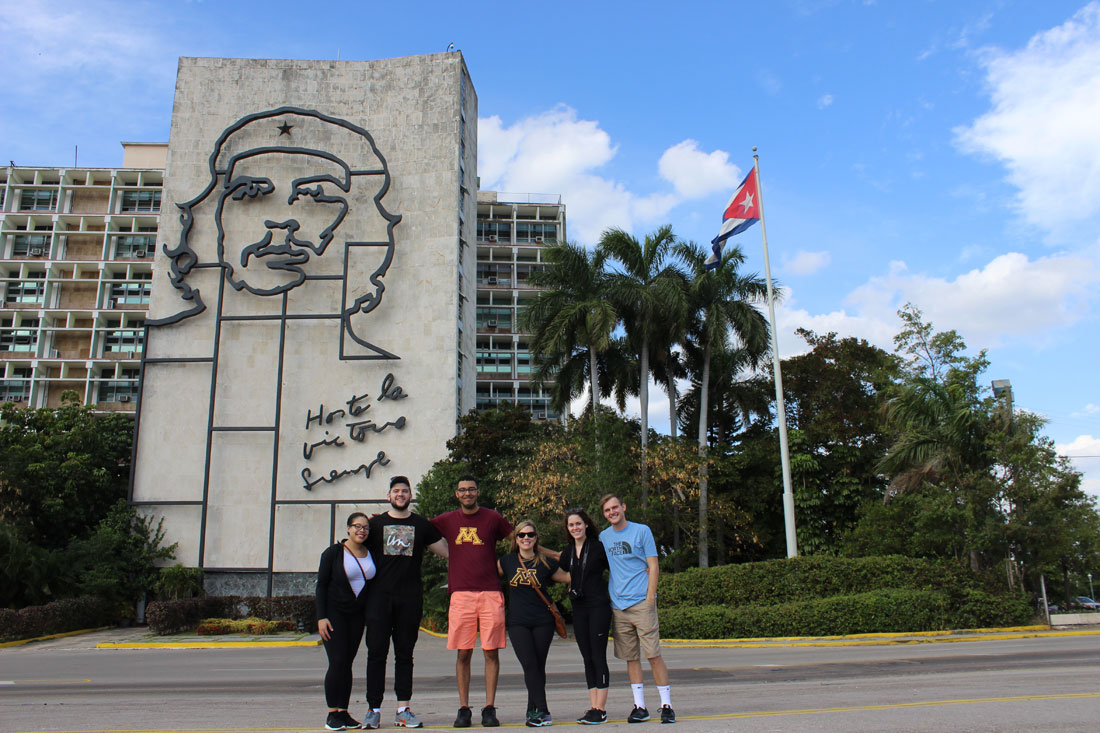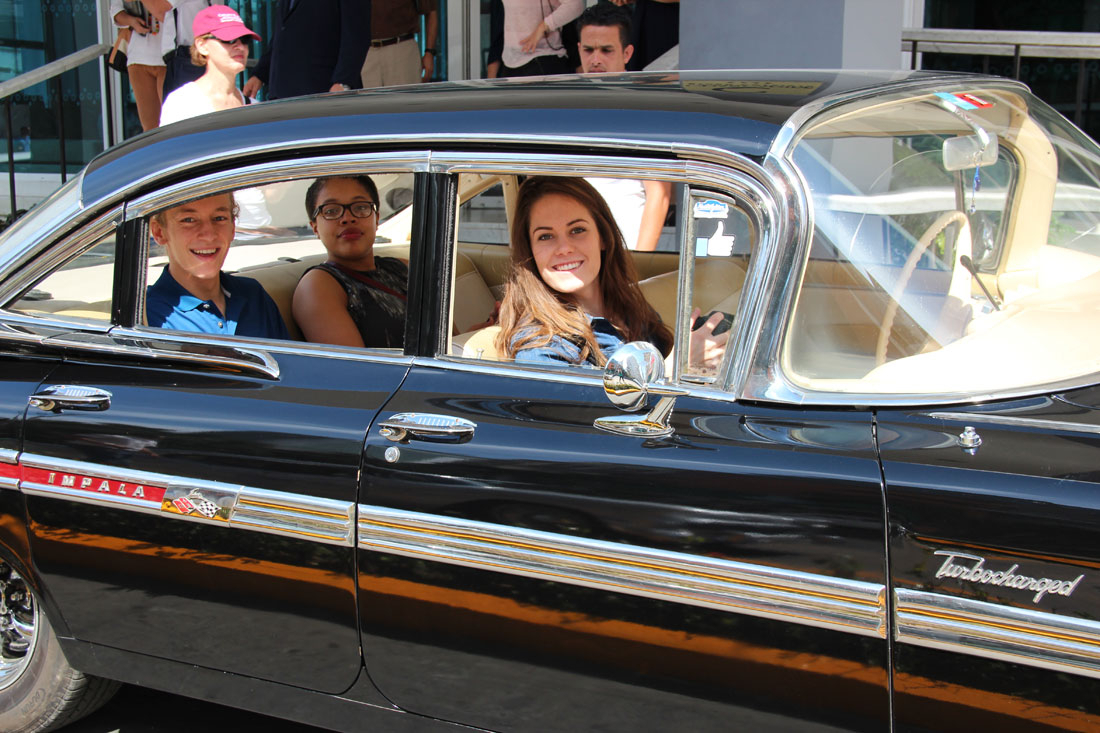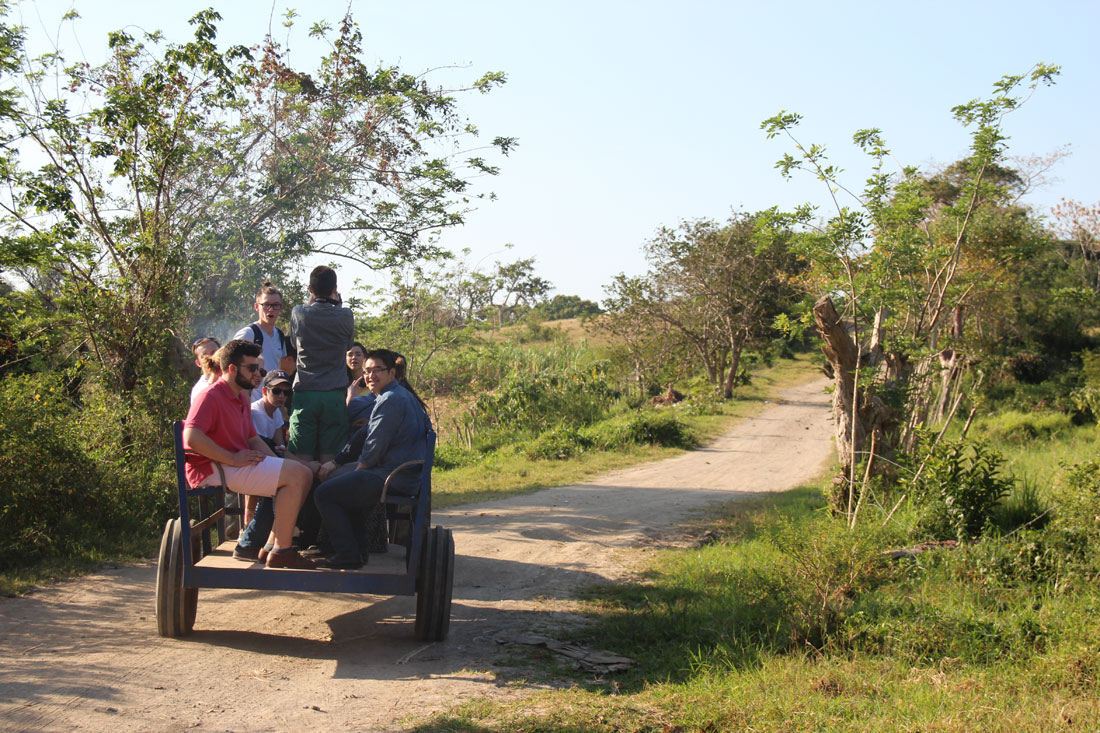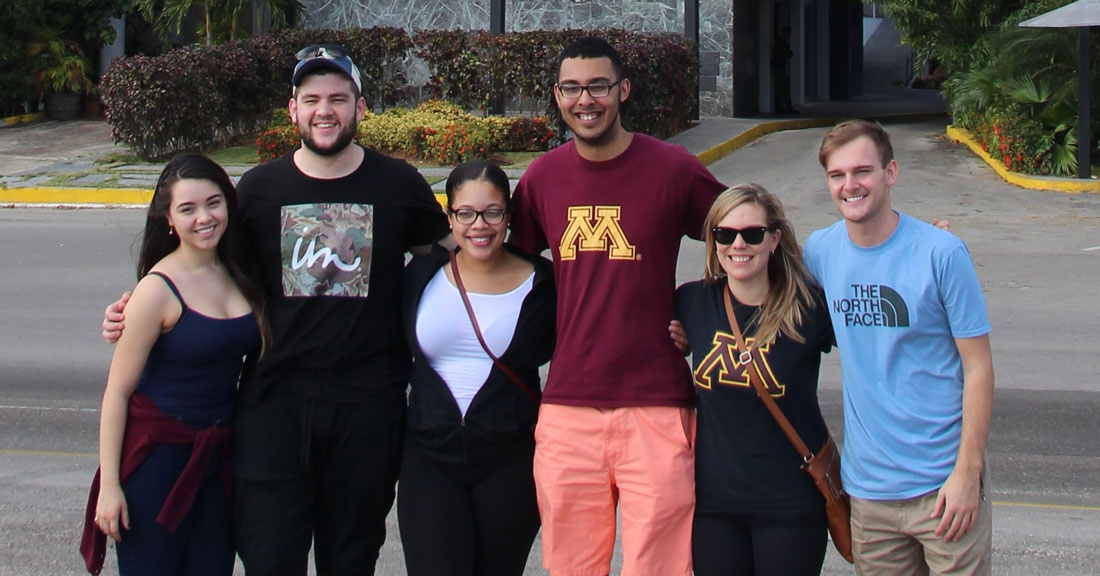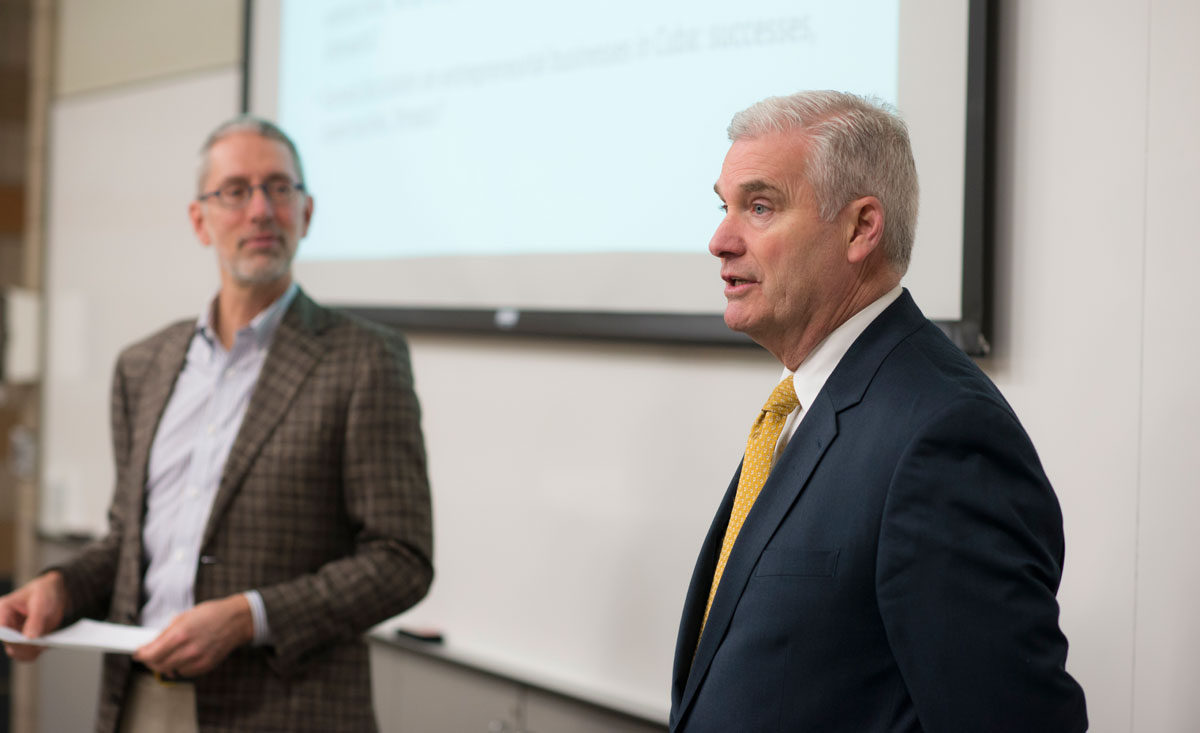
Student Entrepreneurs Pitch Business Ideas in Cuba
Wednesday, April 6, 2016
Prior to a historic visit by President Obama, 27 Carlson School students journeyed to Cuba this month to explore how entrepreneurs are overcoming immense challenges to cultivate their own businesses.
Led by Senior Lecturer Steve Spruth and joined by Carlson School Dean Sri Zaheer, the course exposed students to an up-and-coming entrepreneurship ecosystem that has emerged in Cuba in recent years.
Among other activities, the class visited small businesses launched by enterprising citizens; like homes that residents repurposed into restaurants and hotels, taxi companies, upstart tourism providers, and more.
“While the conditions for starting small businesses remain immensely difficult … the spirit of entrepreneurism is alive and well,” says Zaheer.
Prior to their visit, the students applied an entrepreneurship model they had learned in class to a business based in Cuba. While there, they pitched their ideas to the business owners, and discussed them with local consumers. The exercise led the students to test their ideas and challenge their assumptions about this new market.
One group advised a rum distillery to introduce a pedal pub or “beer-cicleta,” (based on the Spanish word bicicleta, meaning bicycle) that offers tourists a traveling pub experience in the city. And while their idea was largely well-received, the locals pointed out the roads in many parts of Havana were littered with potholes, making bicycling dangerous, and presenting a major roadblock for the concept.
Spruth says this process reminds students that the best entrepreneurs are also strong ethnographers who listen, learn, and collaborate.
“You have to start by listening before you offer solutions,” he says. “I hope students will be open to being surprised when they’re in a new country: to be open to positive and negative insights they gain when they’re there.”
The groups will now refine their business plans based on the insights they gained abroad. Some will continue working with local business owners in hopes of making their ideas a reality.
Now that they’ve returned to the United States, the students will reflect on how their experience can enrich their impending career path. For Betting-Fuentes, she reconnected to her Peruvian roots.
“When you study abroad, you are reminded just how big the world is and how many opportunities there are,” she says. “Growing up with Latin influences in my family, being half Peruvian, I was surprised how similar the culture was in Cuba.”
After graduating this May, Betting-Fuentes (pictured left) will make an 11-month commitment to City Year, a program that offers mentorship to Los Angeles students who are at risk of not graduating high school.
“I’ve always found education to be really valuable and something I want to give back to,” she says. “I also realized Los Angeles is a place where there is a lot of that Latin influence, so it’s a good choice for me to move to that area.”
The group was joined in class this week by U.S. Representative Tom Emmer, who is working toward lifting the U.S.-Cuba embargo. Spruth says that in 15 years of teaching, Emmer was the first elected official to appear in his classroom.
Emmer and the students discussed their impressions of Cuba, the challenges the nation faces, and how the political landscape is shifting.
“I realized how big of a deal it is just at our point in history to go to Cuba with everything that’s changing, and that it was the best decision I could have possibly made,” says Betting-Fuentes.
Watch Congressman Tom Emmer discuss why it's important for the United States to lift its trade embargo against Cuba:
